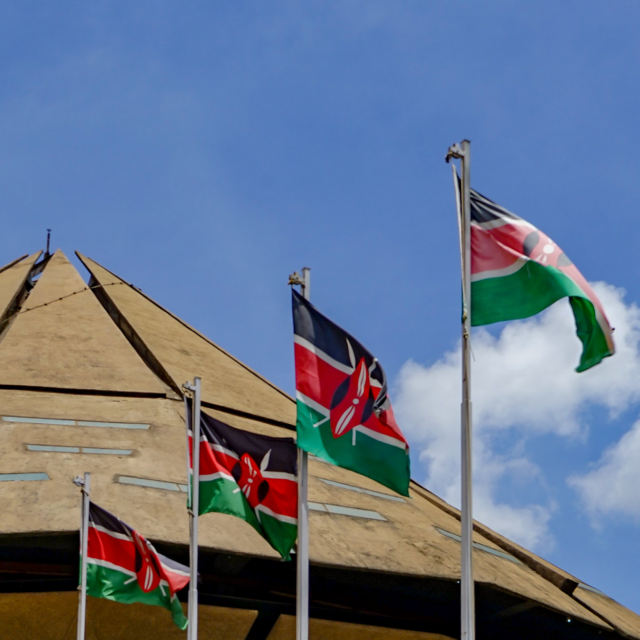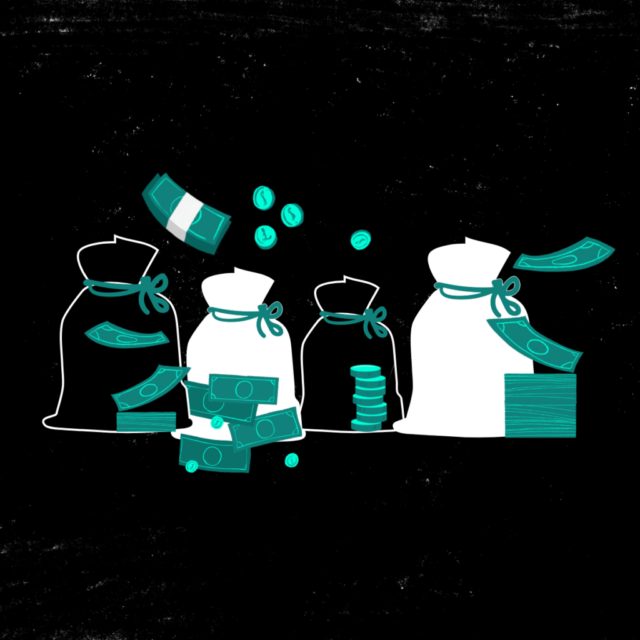Rasna Warah is a Kenyan writer and journalist who is working with the ONE Campaign’s COVID-19 Aftershocks project.
While Western nations are focusing their attention on their post-COVID economic recovery, Kenya is confronting a crisis with far-reaching social and economic consequences: rising poverty levels. Kenya gained an additional 2 million “new poor” as of last November due to the coronavirus pandemic, according to the World Bank’s Kenya Economic Update. “The pandemic is inflicting tragic loss of life and human suffering in addition to eroding progress in poverty reduction,” said the report. Across Africa, an estimated 40 million people been pushed into poverty as incomes drop and unemployment levels rise.
More than a year since the first coronavirus infection in Kenya, almost one in three household-run businesses are not operating, and some may shut down permanently. Between February and June 2020, average revenue from household businesses decreased by almost 50%.
Many businesses have not been able to bounce back to pre-COVID levels as the country enters a third wave of the pandemic, which is predicted to peak this month. Many manufacturers in Kenya experienced a reduction in the demand for their products, which forced them to decrease their production capacity significantly between May and June 2021, according to a recent survey.
Many Kenyans have not just experienced reduced incomes, but have been shut out of the labour market completely. A survey last September found that 1.7 million Kenyans lost their jobs after strict lockdowns and curfews were enforced in April 2020. By the end of June 2020, 4.64 million people were jobless, compared to 2.94 million at the end of March. The majority (63%) were aged between 20 and 29. However, these alarming figures are likely underestimates because a large majority of Kenya’s working-age population is employed in the informal sector.
Joblessness has exacerbated food insecurity and increased the threat of homelessness. Nationally, 30.5% of households were unable to pay rent on the agreed date.
Impact on services
Kenya’s services sector contracted by 3.2% in 2020, due to lower demand and reduced consumption. Travel restrictions, including between some of the country’s 47 counties, have severely impacted foreign and domestic tourism and trade. Strict social distancing measures have curtailed face-to-face interactions in places like restaurants and bars. In April 2021, restriction of movement in the counties of Nairobi, Nakuru, Kiambu, Machakos, and Kajiado —which account for nearly 40% of the country’s GDP — cost the economy Sh230 billion (about US$2.3 billion), according to Mentoria Economics, a Nairobi-based think tank. This is the equivalent of 2.4% of Kenya’s US$96 billion GDP.
Transport costs have also gone up; overall there was a 51.7% increase in the cost of public transport because public service vehicles are obliged to carry fewer passengers to enforce social distancing. Many long-distance bus companies are no longer operating because fewer passengers meant less profit.
But perhaps the most devastating impact is on the education sector, which has been severely disrupted by school closures. Many children from low-income families, especially in rural areas, have been particularly affected. One-quarter of families with children who are enrolled in school did not use any method to continue their children’s learning during school closures, according to the KNBS survey. This was mainly because they could not afford home schooling or did not have access to online classes. These children are likely to lag behind their peers when schools reopen fully.
Debt and taxes
However, instead of cushioning Kenyans from the pandemic’s economic impact, the Kenyan government introduced a raft of new taxes that will raise the cost of living significantly. It has reintroduced 16% VAT on cooking oil and gas, which had been reduced to 14% last year as part of a package of government measures to help Kenyans deal with some of the economic shocks of pandemic. The increased VAT is expected to significantly increase the cost of food items such as bread.
The government also increased excise duty on airtime and telephone services from 15% to 20%. This increase will impact the more than 21 million internet users and 59 million sim card subscribers in the country who rely on mobile phones to communicate and to make and receive payments. Financial analysts say the high cost of living and additional taxes will make life for millions of Kenyans much more difficult.
A borrowing spree is exacerbating the current economic situation. Kenya’s debt rose from Sh630 billion (about $6 billion at today’s exchange rate) in 2002 to a staggering Sh7.7 trillion (about $77 billion) today. By the end of last year, Kenya’s debt stood at nearly 70% of GDP, up from 50% at the end of 2015. Unfortunately, the cost of servicing this debt will ultimately fall with Kenyan taxpayers. Kenyans are likely to see a rise in the cost of basic services as lenders impose conditions that include making these services most costly. For instance, Kenyans learned this month that their water bills are set to rise because lenders such as the World Bank and the International Monetary Fund are pushing for more levies to be imposed on Kenyan consumers.
Such measures are likely to see Kenyans pay more for other services as well, including education. This scenario is reminiscent of the World Bank/IMF Structural Adjustment Programmes (SAPs) of the 1990s, which many criticised for pushing an increasing number of Africans into poverty and making essential services unaffordable for the majority. SAPs came with stringent conditions attached, which led to layoffs in the civil service and removal of subsidies for essential services, such as health and education. African countries undergoing SAPs experienced what is often referred to as “a lost development decade.” This is partly why, in order to forestall anticipated austerity measures occasioned by a $2.3 billion IMF loan to Kenya, more than 200,000 Kenyans signed a petition to the IMF early this year to halt the payment.
A long recovery period
The next wave of the pandemic is likely to severely disrupt economic activities further. With extremely low vaccination levels – only about 1.5 million people in Kenya out a population of more than 50 million have been vaccinated – it is likely that community transmission of the virus could disrupt economic activities for a longer period as lockdowns and curfews become more frequent. Without a mass vaccination programme, and with rising poverty and debt levels, Kenya’s economic recovery may take as long as three years, if not more.
To reverse the trend, the government must take drastic measures to ensure that vaccination levels reach a scale that will allow economic activities to return to normal. Targeted cash transfers to low-income households and support to manufacturing firms and small businesses could alleviate some of the negative economic impacts of the pandemic. Reducing taxes and placing a moratorium on new taxes until the economy recovers would also go a long way in making Kenyans’ lives a little easier in these harsh economic times.
Stay informed
For more on the health, economic, and social impacts of COVID-19 in Africa, check out ONE’s Africa COVID-19 Tracker. It pulls together the latest real-time data from global institutions, governments, and universities about the impacts of the pandemic for the continent and for every African country – including information on food security. For more insights and analysis, sign up for our Aftershocks newsletter and follow us @ONEAftershocks.
Photo credit: Nina R



